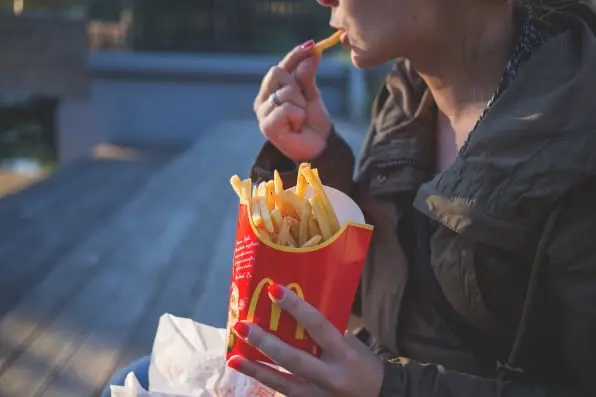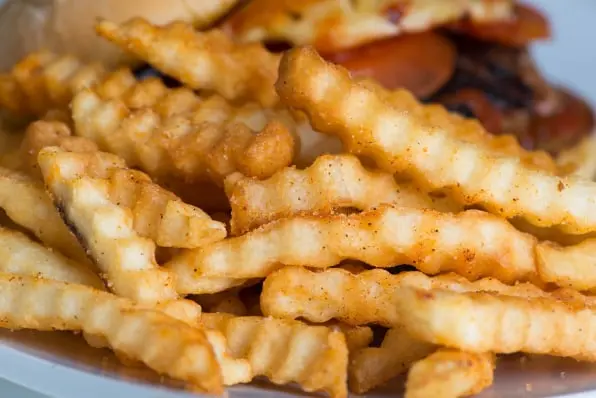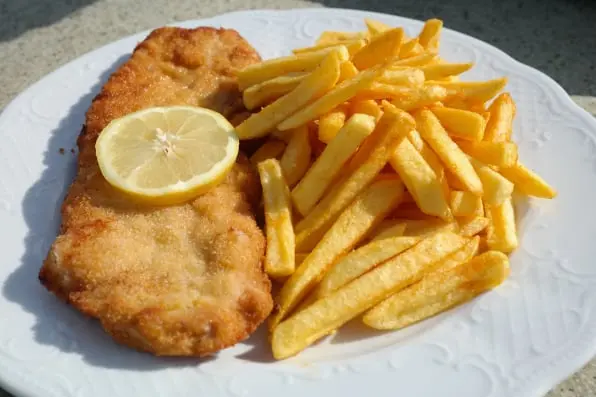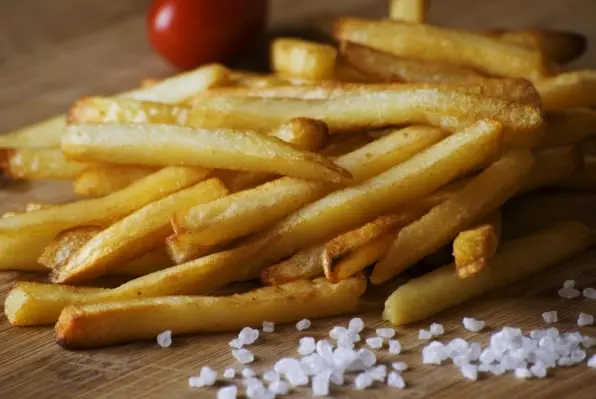Potato fries chips Traceability app:
Potato fries chips Traceability app for fries inspection process during potato peeling, cutting, and potato blanch fry and IQF (Instant quick freeze) fries Traceability.

Potato Fries Supplier Traceability & management
In recent times, food producers have developed an extensive capacity to track the flow of food along the supply chain, though individual systems vary. Some traceability systems are deep, tracking food from the retailer back to the farm, while others extend back only to a key point in the production process. Some are very precise, tracking food products to the exact area of a field where they were grown, while others are less accurate.
Traceability systems tend to be motivated by economic incentives, and not by government traceability regulations. Companies build traceability systems to improve supply-side management, to increase safety and quality control, and to market foods with certain claims – such as whether a type of food was produced without genetic engineering. The benefits associated with these objectives include lower-cost distribution systems, reduced recall expenses, and expanded sales of high-value products. In every case, the benefits of traceability translate into larger net revenues for the company.
But traceability is only one side of the coin. Tracking food in the production process does absolutely nothing unless the tracking system is linked to effective control procedures.
How it Works
The first step to traceability is labeling. While most farms are not required to label each piece of produce they sell, processors prefer to work with farms that label each container that leaves their store. In addition, if the farm uses barcoding technology in its labeling process, it makes traceability more effective and efficient.

Potato Fries Chips Traceabilitys during production
View App Specifications.
PSA FIRST FARM WITH FULLY COMPLIANT POTATO TRACEABILITY
PSA is the first farm in Kenya where the entire history of all of its produced potatoes is fully traceable now. This matters because modern retailers – such as KFC – often demand such traceability from its value chain partners, in order to comply to their food safety policy. PSA is the only organisation that offers the combination of modern potato varieties – grown in Kenya such as Markies – and a fully compliant potato traceability. This enables Kenyan potato processors to produce according to the high international standards and compete with imported French Fries. Potentially it can also unlock export markets for them. Naturally Kenyan farmers also benefit: we encourage them to implement our traceability system themselves, so they too can become ‘key players in the potato premier league’.

Potato Fries Traceability & management
What makes a potato perfect?
Crispy golden fries don't come from ordinary potatoes. They come from potatoes grown in rich, fertile soil, in an ideal climate, by dedicated farmers. When all the elements come together, the results are nothing short of delicious.
Perfect Potato Growing Regions Columbia River Basin Snake River Valley Southern Alberta The Heartland Southern Mississippi
Columbia River Basin
The picturesque farms of the Columbia River Basin in Washington and Oregon stretch as far as you can see, hard at work growing some of the highest quality potatoes in the world. Ancient Missoula floods left behind the area’s volcanic sandy-loam soil, and the nearby Columbia River delivers steady irrigation. Combined with long, sun-filled days and cool nights, this region is ideal for growing the perfect potato.
This study aims to develop an integrated product traceability management system that is based on the post-market traces that include unspecific buyers and producers, the management of product packaging, and supply and demand based on customized consumer communities, with a purpose to improve the export competitiveness of the agricultural and livestock industries. The integrated information system for the agricultural and livestock industries consists of business applications, informatization technologies and platforms, and a raw data collecting platform linked with equipment. This product traceability management system enables not only the holistic management of products produced all over the country and regular purchase but also active management of hand-to-mouth buying and queue-based joint production. In addition, by collecting multifaceted information and offering certifications for the vitalization of the export of agricultural and livestock products, the system enables more effective and systematic management of products. To improve the export competitiveness of the agricultural and livestock industry, this integrated system was developed by introducing the traceability management system, which allows one to obtain and analyze reliable information, manage stocks in a real-time manner, maintain suitable quality, ensure accurate transportation and delivery, and improve customer management.

Daily Potato Fries factory hygiene checklist
Traceability from the field to the table
Thanks to blockchain technology, products in the food and beverage industry can be traced transparently throughout their entire lifecycle, from the raw material’s place of origin to the end consumers. This makes it easier to recall products due to contamination, fight product piracy, and quickly implement consumer wishes.
Contact us
trusted-traceability
Safety from raw materials to the packaged product
Consumers are demanding more, while ever stricter regulations and laws are being adopted. Food and beverage companies not only need to always know where their raw materials come from, they must also know how they are processed and what happens after the product is shipped to the store. It’s best if they can show verification. Trusted traceability is the solution.
From the tuber to the bag: verifiably organic potato chips
Certified organic potato chips are a good example. Their journey runs seamlessly from the organic farmer’s potato field to storage, transport, and processing, including cutting, frying, and seasoning of the potatoes, to turning them into chips and even packaging and distributing them to the retailer. Each station on the potato’s journey generates data which can be collected. But before this data can be placed in the blockchain, it must be verified by everyone involved in the network. Consumers can scan QR codes on the packaging and see that the chips are made from 100 percent organic potatoes that were further processed under optimal conditions.